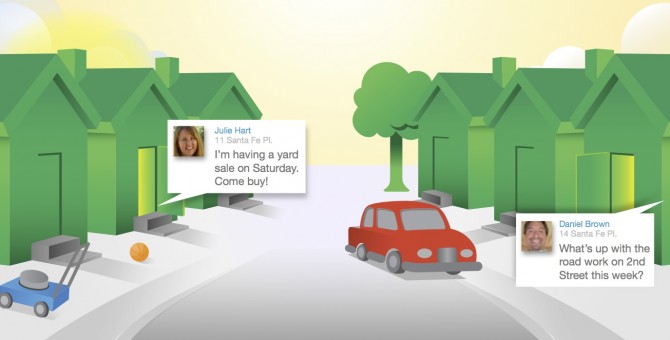This sponsored post is produced in association with Life360.
Facebook, LinkedIn, and Twitter: These are the apps that likely come to mind when you think of social networking. But with the rise of mobile and location sharing, the face of social networks is changing. A new wave of apps and platforms are gaining traction — those that focus on solving problems.
Take the example of Life360. Where are you? If you are a parent, that’s the question you might ask a child, by phone or text, six eight times a day. And if you don’t get an immediate answer, you might find yourself waiting and wondering. Did he make it to soccer practice on time? Is she over at a friend’s house?
Life360 solves that problem. The smartphone app creates a closed social network for your family that keeps everybody in touch without continual check-ins. A suite of features let you keep tabs of your family members throughout the day. The app offers messaging, group chat, and even a map that lets you see in real-time where your family is. The map also marks the locations of hospitals, police stations, and even nearby crime data.
You can use the app to save favorite locations, such as home or school, and receive an alert when a family member arrives at those locations, so you know they are safe. With a new feature called Circles, Life360 invites people outside your family, like a babysitter, to join your close-knit group.
Adoption of the app is growing quickly: The company reports it has over 20 million families, more than double that from of a year ago.
If you want to stay in touch with the people in your own neighborhood, another utility-driven social network, Nextdoor, connects you with people who live near you.
Our neighbors can help us in many different ways, but we often don’t know the person two doors down from us. Nextdoor aims to overcome that barrier.
With Nextdoor, you connect with people based on their location. You have to use your real name and show proof of residency to get admitted to a group. Members create a profile, share photos and other details about themselves, and they can post comments and updates to the neighborhood newsfeed.
The neighborhood network functions on a number of levels. It offers a directory of neighbors who are signed up, resources, and even a market place where you can sell things like that old air filter in your attic. You can use it to organize block parties, get a recommendations for a babysitter, or post a report about a lost pet.
But it can solve bigger problems, too. A mobile version of the app provides value as a crime watch tool. Many members are using it for civic change, for example getting their town to fix a sidewalk, put in a bike lane, or develop a sports fields.
The idea is catching on. Today, the company says over 25,000 neighborhoods — one in six throughout the U.S. — are using the app.
Unlike the typical social networking platforms we are used to thinking about, this new wave of social media apps are not about self-expression. Instead, they enable people to help each other out, both in emergencies and daily situations. And they’re doing it in the real world.
Sponsored posts are content that has been produced by a company that is either paying for the post or has a business relationship with VentureBeat, and they’re always clearly marked. The content of news stories produced by our editorial team is never influenced by advertisers or sponsors in any way. For more information, contact sales@venturebeat.com.

